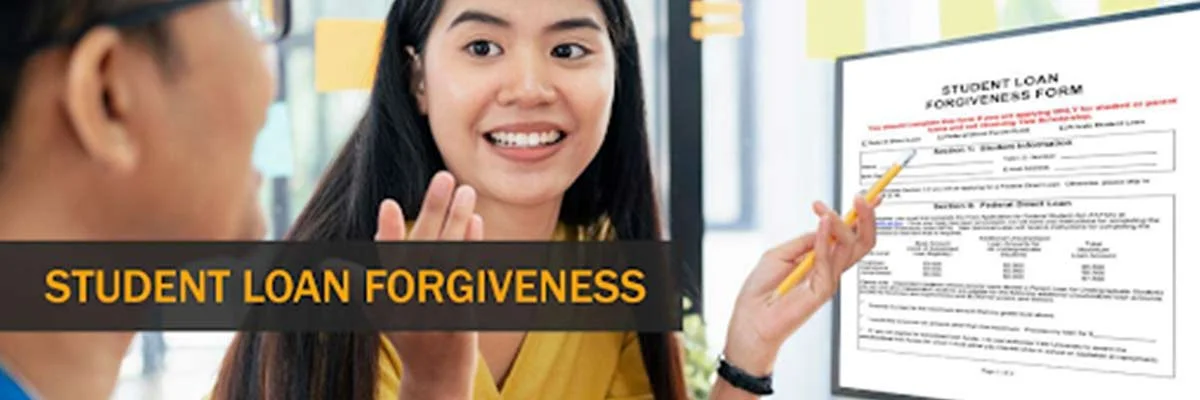Discharging Student Loans | Loan Forgiveness and Discharge
If you want to know how student loans are discharged in bankruptcy, give us a call today at 623-777-4760.
Student Loans are a Nightmare
For many years, Congress has made forgiveness of student debt nearly impossible. The premise was that anyone who takes out a student loan should not be able to discharge that loan and essentially get a “free” education paid by taxpayers.
However, that premise created a firestorm of colleges and universities steadily raising tuition rates due to many factors within the college system. It has gotten to a point now where the costs associated with getting a college degree have become more expensive than the degree is worth.
For so many people, getting a job after college that allows them to not only pay for their student loans but also to make a decent standard of living has become so challenging that we often wonder whether getting the education was the right decision.
Today’s job market is hypercompetitive, and salaries are not keeping up with the demand. But what if you could get your education loan discharged? For many, it could be the fresh start they need to recover from insurmountable debt.
How Do I Know If I Can Discharge My Student Loans?
When facing severe financial difficulties, a hardship discharge of student loans can provide critical relief. This option is typically available in cases where repaying the debt would cause undue hardship, such as due to long-term unemployment, significant medical issues, or other extenuating circumstances.
While obtaining a hardship discharge for student loans is challenging, especially for federal loans, it is not impossible. Borrowers may need to demonstrate their inability to maintain a minimal standard of living if forced to repay the loans, and the court must determine that this situation is likely to persist for a significant portion of the repayment period.
If you’re trying a federal student loan borrower and you’re trying to get your federal student loan debt discharged through bankruptcy, contact a student loan attorney in Arizona today.
In Arizona, the bankruptcy court follows the Brunner test. Brunner was a bankruptcy case filed in the 1980s in which a bankruptcy filer asked the court to discharge his student loans. The court held that a test was needed to determine whether he could get a full student loan discharge… (See, Brunner v. New York State Higher Education Services Corp., 831 F.2d 395 (2d Cir. 1987).
The test consists of three factors to determine whether your student loan debt is dischargeable:
- The debtor cannot presently maintain a minimal standard of living if required to repay the student loan
- Circumstances exist that indicate the debtor’s financial situation is likely to persist into the future for a significant portion of the loan repayment period
- The debtor has made good-faith efforts in the past to repay the student loan.
For many people, getting past the first prong of the test is the most difficult. Most student loan servicers will argue that if the debtor has any type of employment, then the debtor can pay “something” towards the loan even if it’s on one of the government’s student loan repayment plans. However, the Biden Administration relaxed some of these standards which may help some people discharge student loans.
The focus is changing more toward the second prong of the test, which indicates whether the debtor will be able to pay anything significant toward the student loan debt in the future.
This test helps those debtors who either have been unable to find work in the job sector for which they have a degree, are underemployed in their job sector, or have been duped by for-profit schools leaving them with a degree which makes it hard to find work in their employment sector.
For these debtors and others who are struggling with unsurmountable debt, Dischargeability is easier than ever before.
What Does It Take To Get A Discharge Of My Student Loan Debt?
Bankrupting student loans requires that we determine which chapter of bankruptcy is best for you or what chapter you qualify to file. Once your case is filed, you need to file a separate lawsuit within your bankruptcy called an Adversary Proceeding.
In this lawsuit, you will claim the dischargeability of your student loan debt by proving that you pass all three of the above prongs for the Brunner test. In this proceeding, the government has made the process easier by allowing facts to be stipulated through a form provided by the government. You enter information about your employment and monthly expenses.
These numbers help the court and the student loan servicers see what your ability to pay off your debt looks like. The student loan servicers will provide the government and the court with a history of your prior student loan payments and other events like forbearance or consolidation.
The government will take a position as to whether they agree on discharge or a recommendation for full or partial discharge or interest rate reduction to help you. However, it all comes down to the bankruptcy court and the judge’s ruling. If the judge believes you have proven your case, then you will get a discharge.
If you are burdened with student loans with little to no ability to make those payments for the foreseeable future, and you have done your best to make good on the loans, then bankruptcy might be what you need to get a discharge of your student loans.
And if your student loans are not discharged, getting rid of other debt may help you free up cash to make those pesky student loan payments. Either way, let’s talk about your case and see if you might qualify.
Jim Gaudiosi can help students discharge their loans through bankruptcy. Give us a call today at 623-777-4760.


